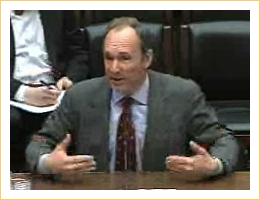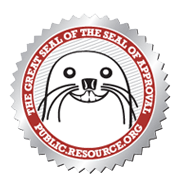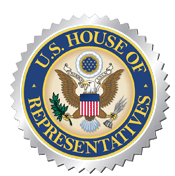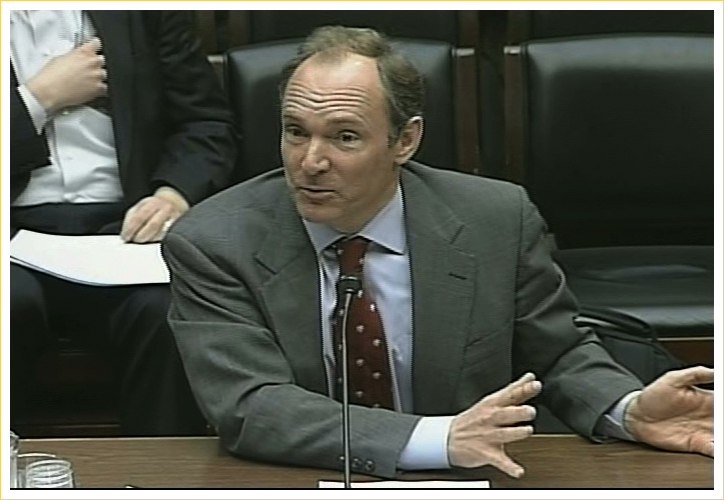Public Access and the U.S. House of Representatives

Streaming Media and the House of Representatives
The picture to the left is what the U.S. House of Representatives provides the public as their Internet presence. The picture below shows the same hearing as a standard broadcast-quality TV picture. In a comprehensive Report to the Speaker of the U.S. House of Representatives, Public.Resource.Org outlined a series of steps the House of Representatives can take to improve the quality of their presence to the public on the Internet. A 4-committee pilot project demonstrated how much of a difference improved quality can make. Below, the same hearing is shown as available today on the Internet Archive (with thanks to Chairman Markey for participating in our pilot project!).
Dear Speaker UPDATE: View the supplement to the report.
Lo-res
can *you*
tell the difference?
Hi-res
Matching Paper to Media
2008: Partnership with the Internet Archive and the Boston Public LibraryPublic.Resource.Org is delighted to be able to announce that we are working with out colleagues at the Internet Archive and a consortium of libraries headed by the Boston Public Library to scan, in Phase 1, 2.5 million pages of congressional documents. Read the Joint Announcement with the Internet Archive There are 100 million pages of key government documents—the Congressional Record, the Federal Register, Hearings, Bills, Reports, and many others—that taken together are the law of the land, America's Operating System. Efforts such as those of the Internet Archive are a vital public counterweight to proprietary arrangements such as the one we have protested at the Government Accountability Office. |
1994: The Congressional Memory ProjectIn 1994, the Internet Multicasting Service received the first new media credentials to the House/Senate galleries. We ran dedicated audio lines from the basement of the capitol back to our studios on top of a Chinese restaurant on Capitol Hill, then out to the Multicast Backbone.
Read Deb's Paper on the Congressional Memory Project |
On Other Fronts
C-SPAN: A Friendly-Fire IncidentC-SPAN is one of American's great national institutions, a pioneer in government transparency. But, when they sent a "take-down" notice to the Speaker of the House for posting video of herself testifying before the House of Representatives, we felt the copyright laws had been stretched a mite thin and opened a dialogue. C-SPAN responded with an expansive redefinition of their copyright policy, allowing reuse and mashups with a very liberal definition for all of their government proceedings, in the past and in the future. As James Fallows said, “Good for them!” Read our letter to C-SPAN. 
If Congress can't provide broadcast-quality video for download on the Internet in non-proprietary formats, could a new nonprofit do the same thing? |
EyeSpan: A Failed Social Venture |


















